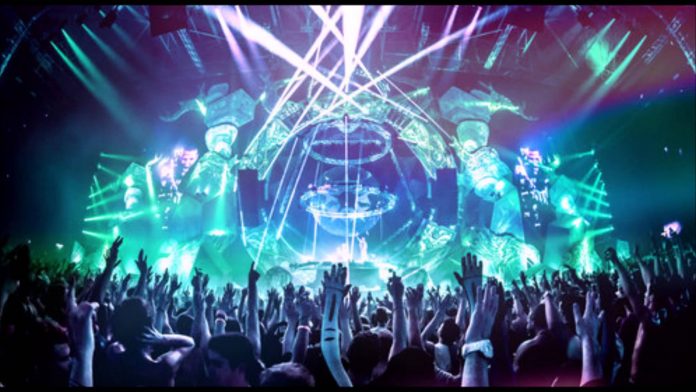LAHORE
The scenario in metropolitans of Pakistan has come to a change. Mega brands including Zong, Coke and Telenor are planning to, or already have, held raves to attract customer base. This not only satisfies the current customers but also leads in new potential ones.
Bouncers laden with arms stand, at the entrance to the Elements Music Festival, an invitation-only affair sponsored by wireless carrier Zong. They frisk guests and sniff bottles for traces of alcohol, which is banned among the nation’s Muslim majority. Inside, local DJs Faisal Baig and Fuzzy Nocturnal play sets of bass-heavy, looping music that end Sunday morning to chants of “One more song!”
China Mobile Communications Corp, which owns Zong, is one of several foreign brands trying to grab Pakistan’s young consumers by their ears. Coca-Cola, Telenor, and PepsiCo have also sponsored raves. About two-thirds of the population is under 30, and the economy is projected by the International Monetary Fund to grow at more than 5 per cent annually over the next five years. Household consumption’s contribution to gross domestic product hit 80 per cent in 2015, higher than the global average of 58 per cent, according to the World Bank.
Although annual GDP per capita is just $1,561, according to the Pakistan Bureau of Statistics, the country of more than 200 million is home to a sufficiently large cohort of young, liberal, and affluent consumers willing to pay the 2,500-Pakistani-rupee admission (about $24) to the Elements festival. “There’s no nightlife here, there’s no clubs,” says Bilal Brohi, 30, a Karachi-based DJ and producer. Pakistanis “want to just have a crazy night out. They just want to disassociate.”
Many young Pakistanis developed a taste for house music, techno, and other Western genres while studying abroad. They’ve been able to support their habit after returning home thanks to the growing availability of cell phones, coupled with better internet service. Smartphone shipments increased 28 percent in the first quarter from a year earlier, says International Data Corp.
MullenLowe Rauf Group, a Karachi marketing, and communications firm, estimates that foreign and domestic companies have ramped up spending on advertising more than 60 percent since 2012, to about 70 billion rupees a year. “People want entertainment,” says Saad Salahuddin, a media director at MullenLowe Rauf. “They want more avenues to have fun. They have the power to spend now.”
Most events are clandestine affairs for a few hundred people vetted by promoters and organizers. Locations typically are disclosed only hours in advance through social media to help minimize overcrowding and the possibility of being shut down by police, local bureaucrats, or armed militants. “We have to ensure security,” says Shehbaz Sharif, the chief minister of Punjab province and brother of the prime minister, while noting that his government has worked to promote some events.
Coca-Cola spends millions of dollars a year on concerts and other music-related activities in major cities in Pakistan, according to Fahad Qadir, a Lahore-based spokesman for the company. Since 2008 its local subsidiary has sponsored a TV show called Coke Studio that features in-studio performances by local artists. The program has proved so popular it’s been duplicated in India, the Middle East, and North Africa. “There are two passion points for Pakistanis,” says Qadir. “One is cricket, the other is music.”
That said, many Pakistani DJs and promoters at the raves have learned that theirs can be a dangerous profession: One says he was beaten up for not playing a track requested by a politician. Another says police raided a concert and arrested a DJ on charges of soliciting sex workers, alleging the women weren’t attended by choice.
Hence it is true that there exists plenty of untapped potential in the Pakistani market which is reaping with young, trendy customers. The initial pitch to utilise this potential may fall on either side of the fence but all in all, it seems to be a good initiative to market products, services, and brands.




